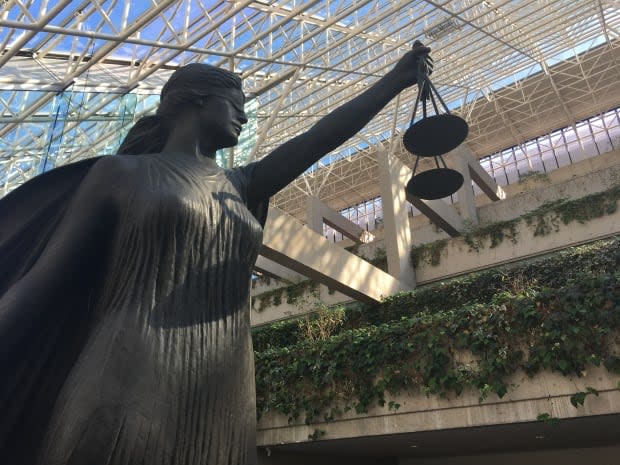When being in jail beats being released: inmate seeks parole 15 years after he first could
As a younger man with a different name, Iridian Mishael Grenada made national headlines for his crafty attempts to escape custody.
But for more than a decade, the imprisoned convicted murderer has found himself in a position one legal observer described as unique in the annals of extradition cases.
Grenada — who used to be known as Gregory Lloyd Hanson — has been eligible for day parole since 2004 and full parole since 2007.
But he has never applied to get out because of the terms of a 2002 extradition order that means he would be sent to the U.S. to face bank robbery charges the second he steps out of jail.
According to a B.C. Court of Appeal ruling issued earlier this month, Canada's Minister of Justice has agreed to take a second look at the order to surrender Grenada to the U.S.
And so with that possibility ahead of him as well as a new request for the appeal court to review his extradition case, Grenada plans to appear before the parole board next month — nearly 15 years after he was first eligible to make a pitch for release.
A brazen break
The bizarre circumstances of Grenada's dilemma are spelled out in the ruling from the top court, which was asked to consider bail for the inmate while the appeal court judges reconsider his case.
They ultimately decided they would have to wait to see what conditions the parole board released him on before deciding whether they could sign off on bail.

As Gregory Lloyd Hanson, Grenada amassed a considerable criminal record dating back to 1984. He was serving an eight-year sentence for robbery when he escaped Matsqui medium security institution in a dumpster while working in the prison kitchen.
The brazen jail break made national headlines because it happened while the then-security critic for the national Reform Party happened to be visiting the prison.
It was during that time at large that he committed the second-degree murder of an accomplice who helped him carry out a number of bank robberies in Montreal. In 1995, Grenada received a life sentence with no possibility of parole for 13 years.
Damned if he does
The U.S. charge dates back to a 1992 bank robbery in California. Investigators matched Grenada's fingerprints to a hoax bomb that was used in the heist to steal $39,122.
He consented to a committal order for extradition in 2002. He has tried to plead guilty to the robbery, contingent on serving his sentence in Canada, but he's been unsuccessful so far. Sentencing guidelines in the U.S. suggest he could get a 25-year sentence with no possibility of parole.

And so in the meantime, the terms of the surrender order say Grenada would be turned over to the Americans upon "being either granted parole or otherwise released from custody in Canada."
"Due to the nature of the surrender order, Mr. Grenada has consistently declined to apply for parole and waived his right to be heard on statutory hearings," the appeal court ruling says.
"Obtaining parole would result in Mr. Grenada being surrendered to the United States and separated from his family and faith community to whom he is devoutly committed."
The federal minister of justice agreed to consider Grenada's submissions on the surrender order in 2017 due to the "exceptional" nature of his case.
Grenada claims his personal circumstances have changed dramatically and the law has also since evolved mandating the courts to consider the historical disadvantages faced by Indigenous offenders in reaching decisions. He also says the extradition order hanging over his head has caused him "unique and irreparable" harm.
A 'stark choice'
According to the appeal court ruling, University of British Columbia professor emeritus Michael Jackson has made submissions to the minister of justice on Grenada's behalf. He described the situation as an "invidious and stark choice that in the annals of extradition cases few if any other Canadian(s) have faced."
Grenada says he plans to live in Kamloops if released, where he and his wife will care for his sick parents. He hopes to begin with unescorted temporary absences to his wife's home, then his place of worship, building up to full parole.
On top of it all, the Correctional Service of Canada views Grenada as an escape risk due to the U.S. charges and that he could be sent to California for trial.
In considering Grenada's request, the appeal court judge concluded that his request for release pending a decision on a judicial review of the surrender order should be adjourned until the parole board makes its decision.
At that point, the judges said they would be better able to gauge the risk that he might be a no-show for extradition.

 Yahoo Movies
Yahoo Movies 